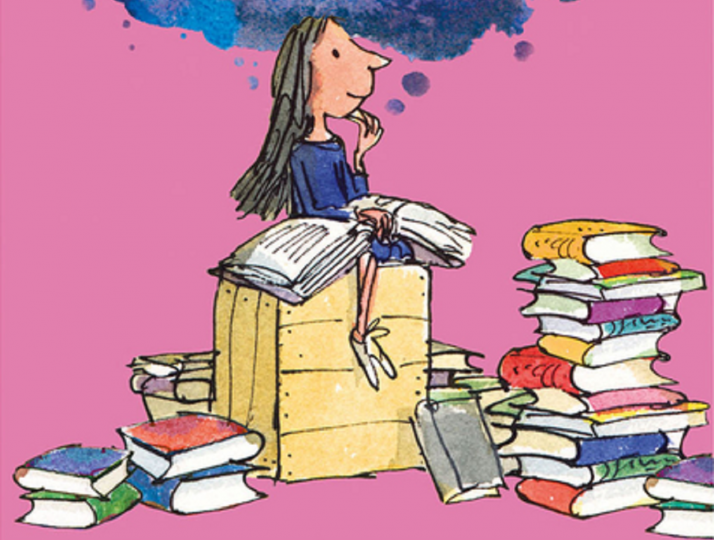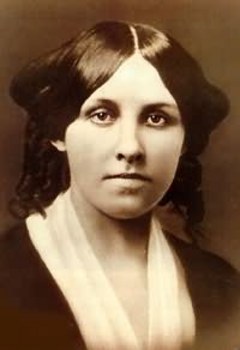

“Keep good company, read good books, love good things
and cultivate soul and body as faithfully as you can.”
Louisa May Alcott
Courtesy of Relaxing Music Life:
“Don’t limit yourself.
You can go as far as your mind lets you.
What you believe, you can achieve.”
Mary Kay Ash
Today’s post returns to the world of kindness, appreciation, and gratitude. The book is about the daily lives of families that had to work hard to survive events that included civil wars, political upheavals, and bad luck. And, overwhelmingly, how these stories can tell readers about human nature – and about the compassion, friendships, generosity, and gratitude that good books can breed.
LOUISA MAY ALCOTT
29 November 1832 – 6 March 1888

Courtesy of Brut America:
Louisa May Alcott was born in Pennsylvania and grew up in Concord, Massachusetts, the second of four daughters of a notable proponent of Transcendentalism, Bronson Alcott. Ralph Waldo Emerson was a friend of the family, as were Henry David Thoreau and Nathaniel Hawthorne. Sharing the ideals of many of their circle, the Alcotts devoted themselves to “plain living and thinking.”

Courtesy of GBH:
Despite her transcendentalist pedigree, however, Louisa May Alcott always kept her feet on the ground, working as a seamstress, a governess, a nurse, and, eventually, an author to contribute to the household income. Her most famous work, Little Women, is drawn from her own family life: it is among the most cherished and popular children’s books of all time.
“Lullaby” by Johannes Brahms, performed by Yo-Yo Ma and Kathryn Stott:
Ralph Waldo Emerson, a family friend

Within its comfortable domestic compass, many readers first discovered the importance of the questions:
Who am I, and who do I want to be?
Little Women (1868) was an immediate success on publication, selling a then-unprecedented 2,000 copies. The story is based on the author’s childhood memories of her parents and three sisters, and the character of Jo is said to be semi-autobiographical. The publisher urged her to produce more in the same vein, so Good Wives and Little Men followed, as well as many other novels.
Courtesy of Masterpiece PBS:
Little Women (1933)

Alcott campaigned for several political reforms during her lifetime, especially the women’s suffragette movement. She was dogged by ill-health, after she contracted typhoid while serving as a nurse during the Civil War and was treated with a mercury compound that effectively poisoned her; it was the cause of her death in 1888.
“Nocturne in C Sharp Minor” by Frédéric Chopin, performed by Hauser and London Symphony Orchestra:
There have been several screen versions of the novel, the most famous is the version starring Katharine Hepburn as Jo; more recent ones were released in 1994 with Winona Ryder in the role, and in 2019 with Saoirse Ronan.
Courtesy of Sony Pictures Entertainment:

LITTLE WOMEN
The central figure of the novel is Alcott’s alter ego, Jo March, a spirited fifteen-year-old tomboy who yearns to become a writer the way other girls dream of getting married. She lives with her three sisters at home with their mother, surviving on very little money, while their improvident army chaplain father is away during the American Civil War.

There is Meg, who’s beautiful but prone to vanity; hot-tempered Jo, who wants to be a writer, frail Beth, the sweet, quiet one; and Amy, who can be selfish at times. It is Christmas as the book opens, and Jo and her sisters – Meg is the oldest at sixteen, and Beth and Amy are thirteen and twelve respectively – are at home with their beloved mother, Marmee, while Mr. March is away. Initially, the girls pity themselves for being poor at Christmas, but a letter from their father prompts a pledge to improve themselves by working on their faults – vanity, temper, shyness – in order to make him proud when he returns:
“I’ll try and be what he loves to call me, ‘a little woman,’ and not be rough and wild; but do my duty here instead of wanting to be somewhere else,’ said Jo.

From the first line – ‘Christmas won’t be Christmas without any presents’, grumbled Jo – Alcott taps a vein of realism and colloquial expression that was ahead of its time and that still retains its attraction. What follows is a tale of life, love, friendship, illness, and coming of age, one in which the ‘little women’ prove to have more courage, resourcefulness, and character than the adults who ostensibly hold sway over them.

More tellingly, Little Women is the story of four archetypal girls whose personalities remain familiar today; rare is a reader who doesn’t see herself, if only for an episode, as a Meg, a Jo, a Beth, or an Amy, fascinated by her reflection. The story will have you laughing one moment and crying the next. It is easy to understand why this is one of the most popular children’s books of all time.

An extract from Little Women:
“The clock struck six and, having swept up the hearth, Beth put a pair of slippers down to warm. Somehow the sight of the old shoes had a good effect upon the girls, for mother was coming, and everyone brightened to welcome her. Meg stopped lecturing and lighted the lamp. Amy got out of the easy chair without being asked, and Jo forgot how tired she was as she sat up to hold the slippers nearer to the blaze.

‘They are quite worn out. Marmee must have a new pair.’
‘I thought I’d get some with my dollar,’ said Beth.
‘No, I shall!’ cried Meg.
‘I am the oldest,’ began Meg, but Jo butted in with a decided,
‘I’m the man of the family now papa is away, and I shall provide the slippers, for he told me to take special care of mother while he was gone.’
‘I’ll tell you what we will do,’ said Beth, ‘let’s each get her something for Christmas, and not get anything for ourselves.’
‘That’s like you, dear! What will we get?’ exclaimed Jo. Everyone thought soberly for a minute, then Meg announced as if the idea was suggested by the sight of her own pretty hands, ‘I shall give her a nice pair of gloves.’
‘Army shoes, best to be had,’ cried Jo.
‘Some handkerchiefs, all hemmed,’ said Beth.
‘I will get a little bottle of cologne. She likes it, and it, and it won’t cost much, so I will have some left to buy something for me’ added Amy.
‘How will we give the things?’ asked Meg.
‘Put them on the table, bring her in and see her open the bundles. Don’t you remember how we used to do on our birthdays?’ answered Jo.
‘I used to be so frightened when it was my turn to sit in the big chair with the crown on, and see all of you come marching round to give the presents, with a kiss. I liked the things and the kisses, but it was dreadful to have you sit looking at me while I opened the bundles,’ said Beth, who was toasting her face and the bread for tea at the same time.
‘Let Marmee think we are getting things for ourselves, and then surprise her. We must go shopping tomorrow afternoon, Meg.”

Just a final wish to my readers for a very happy start to spring and Mothering Sunday!
“Only Time” by Enya (courtesy of EnchantedEscape)

One of my favorite books.
LikeLike
Thank you for your kind comment! Apologies for the late reply!
Joanna
PS. I have an important civil case pending and have many legal papers to fill in, and that is the reason I am not going to publish my post for a week or two.
LikeLiked by 1 person
Very informative book review, Joanna!
LikeLike
Thank you, Indira, for your kind comment, Greatly appreciated!
Joanna
LikeLiked by 1 person
Amazing … You are the best 🌹🙏
LikeLiked by 1 person
Thank you for your wonderful comments! Greatly appreciated!
Joanna
LikeLiked by 1 person
🙏🌹
LikeLike
Namaste.
LikeLiked by 1 person